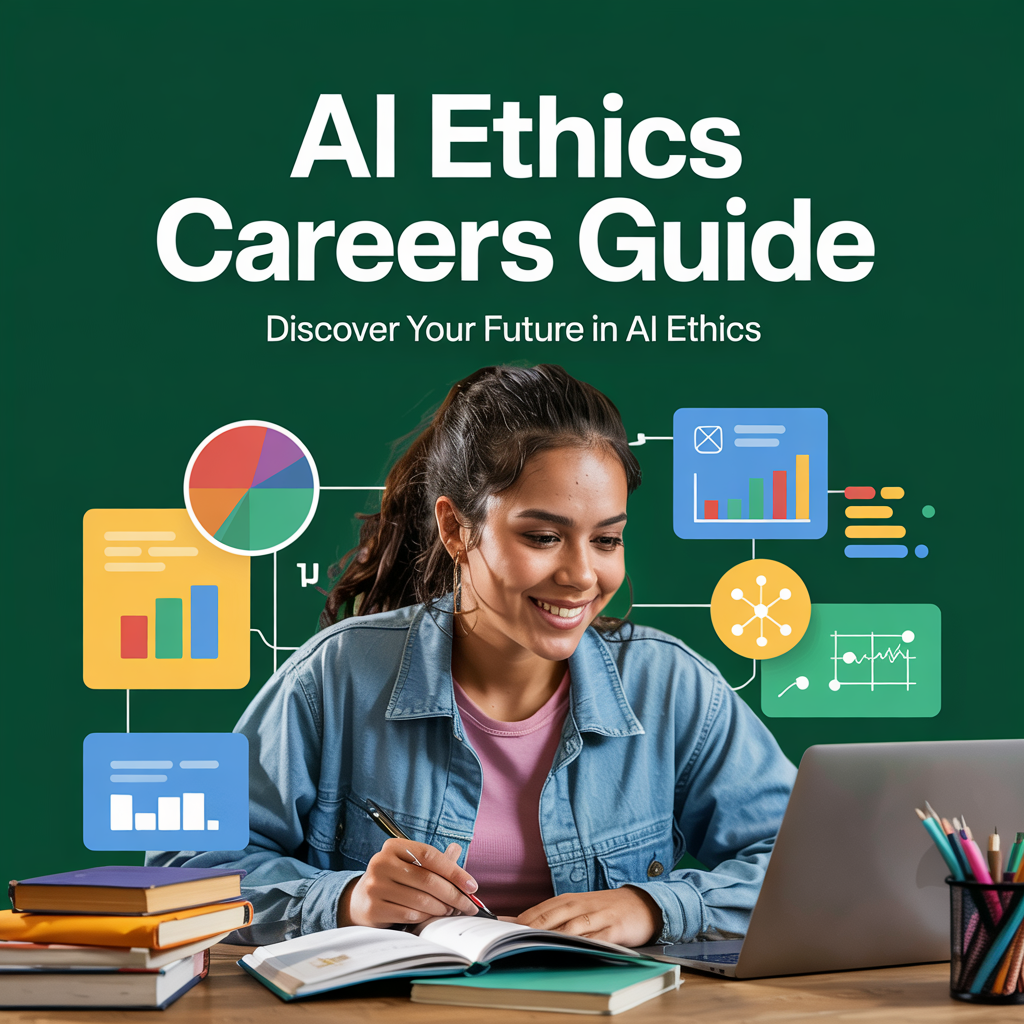The Ethics of AI in Your Future Career: What Gen Z Needs to Consider

Artificial intelligence (AI) is rapidly becoming part of our daily lives and workplaces. From recommendation algorithms to self-driving cars, AI is transforming industries. As members of Gen Z prepare for their future careers, understanding the ethical side of AI is crucial. Thinking about AI ethics careers and the broader future of AI jobs involves grappling with important questions about fairness, bias, privacy, and the overall AI impact on society. Explore potential AI ethics careers and connect with opportunities on cirkled in.
AI is Here: Understanding its Growing Role
AI refers to computer systems designed to perform tasks that normally require human intelligence, like learning, problem-solving, and decision-making. It’s being used in:
- Healthcare (diagnostics, drug discovery)
- Finance (fraud detection, algorithmic trading)
- Transportation (autonomous vehicles, traffic optimization)
- Entertainment (recommendation engines, content generation)
- Customer service (chatbots)
- Manufacturing (automation, quality control)
- And many more fields.
Its influence will only continue to grow.
Beyond the Code: Why AI Ethics Matter
While the technology is powerful, how it’s built and used raises significant technology ethics issues. AI systems are created by humans and trained on data generated by humans, meaning they can inherit and even amplify human biases. Decisions made by AI can have real-world consequences for individuals and communities. Considering responsible AI use is essential.
Key Ethical Issues Raised by AI
Some major ethical concerns include:
- Bias and Fairness: AI algorithms trained on biased data can lead to unfair or discriminatory outcomes (e.g., facial recognition struggling with certain demographics, biased loan application decisions). Ethical AI development must address this.
- Privacy: AI systems often require vast amounts of data. How is this data collected, used, and protected? Who owns the insights derived from it?
- Transparency and Explainability: Can we understand why an AI made a particular decision? “Black box” algorithms can be hard to scrutinize, making it difficult to identify errors or biases.
- Accountability: Who is responsible when an AI system makes a mistake or causes harm? The developer? The user? The owner?
- Job Displacement: Automation driven by AI may displace human workers in certain sectors, raising questions about economic inequality and the need for retraining.
- Security: AI systems can be vulnerable to attacks or manipulation.
- Autonomy and Control: How much decision-making power should we delegate to autonomous systems?
The Impact of AI Across Different Fields
These ethical questions aren’t just theoretical; they impact various careers:
- Healthcare: Ensuring AI diagnostic tools are fair and accurate for all populations; patient data privacy.
- Criminal Justice: Concerns about biased predictive policing algorithms or facial recognition.
- Hiring/HR: Avoiding bias in AI-powered resume screening tools.
- Finance: Ensuring fairness in algorithmic lending and preventing discriminatory practices.
- Media/Content: Dealing with AI-generated misinformation (“deepfakes”) and copyright issues.
Anyone entering these fields will likely encounter AI-related ethical dilemmas.
Emerging AI Ethics Careers and Roles
The growing awareness of these issues is creating new roles focused specifically on AI ethics careers:
- AI Ethicist / Responsible AI Lead: Works within companies to develop ethical guidelines, review AI systems, and ensure responsible practices.
- AI Policy Advisor: Helps governments or organizations create regulations and policies around AI use.
- AI Auditor: Independently assesses AI systems for bias, fairness, and compliance.
- AI Bias Specialist: Focuses specifically on identifying and mitigating bias in algorithms and data.
- User Trust & Safety Roles: Works on ensuring AI platforms are safe and protect user privacy.
These roles often require a blend of technical understanding, critical thinking, and knowledge of ethics, law, or social sciences. Find resources and connect with professionals in AI ethics careers on cirkled in.
Preparing for an AI-Influenced Future (Ethically)
Whether you pursue a specific AI ethics role or work in another field impacted by AI, consider:
- Develop AI Literacy: Understand the basic concepts of how AI works, its capabilities, and limitations.
- Cultivate Ethical Reasoning: Take courses in ethics, philosophy, or social sciences. Practice critical thinking about technology’s impact.
- Seek Diverse Perspectives: Understand how AI can affect different groups of people in different ways.
- Stay Informed: Keep up with discussions about AI ethics and regulations.
- Ask Questions: In your future jobs, question how AI is being used and advocate for responsible practices.
Final Thought: Shaping a Responsible AI Future
The future of AI jobs is intertwined with ethical considerations. As AI becomes more integrated into society, the need for individuals who can navigate technology ethics issues and promote responsible AI use will grow. Whether you aim for dedicated AI ethics careers or simply use AI tools in your work, understanding and prioritizing ethical development and deployment is essential for building a fair and beneficial future with artificial intelligence.
Need more tips on college applications, scholarships, or just how to survive this whole process? Cirkled In has your back—check out Cirkled In resources to help you through every step of your college journey!Check out Cirkled In and start owning your future today!



0 Comments